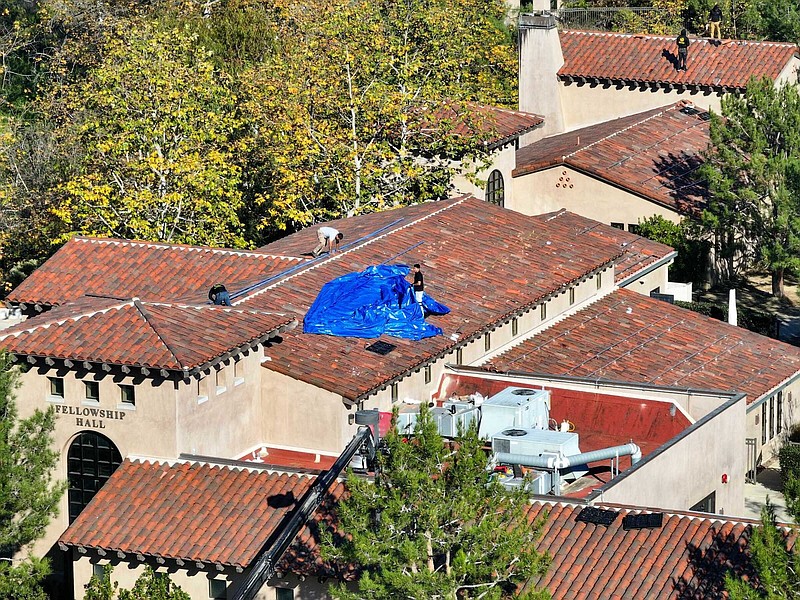Crews started installing solar panels this week on the red tile roof at St. Mark Presbyterian Church in Newport Beach, Calif. Pastor Mark Davis said the project, once complete, should power the church's entire 7-acre campus easily.
Last year, many of St. Mark's 550 members attended a meeting, in keeping with Presbyterian doctrine, to vote on taking out a loan to finance the $200,000 solar project. There was some spirited debate about the financial implications, Davis said with a chuckle, but in the end members gave the project an enthusiastic green light. They see the panels as key to St. Mark's goal of going completely carbon neutral by 2030.
"My message is that it's an ethical imperative that we focus on the common good," Davis said. At his church, he said, congregants are regularly encouraged to think about protecting "the flora and the fauna, the dirt, the water, the air -- all of the things that it takes to sustain life."
An hour's drive to the east, on the other side of the Santa Ana Mountains, parishioners at 412 Church Temecula Valley are getting very different guidance about climate concerns.
"From the Biblical perspective, it is an exercise in futility to try and save the planet," said Tim Thompson, pastor of the conservative Murrieta church.
Thompson preaches that climate change is a "man-made issue." But instead of saying it's environmental degradation caused by human activity, he describes it as a talking point invented by humans "to distract people from other issues that really matter."
"Sadly, many Christians have bought into this wicked ideology, and have joined others in the worship of the creation, rather than worshipping the One who created it all."
Just 31% of white evangelicals accept the scientific consensus that climate change is caused mostly by human activity, per an October survey from the Public Religion Research Institute. That's vs. 54% of non-evangelical Christians; 61% of all Americans; 70% of Americans who identify as Jewish, Muslim or other religions; and 90% of atheists.
These gaps also are growing. While Americans overall are more likely to consider climate change a crisis today than they did a decade ago, the poll shows the share of white evangelicals who view climate change that way dropped this year from 13% to 8%.
The number of Americans who identify as conservative Christians also is shrinking, another recent PRRI study shows, and at a much faster clip than the broader decline in Americans' affiliation with organized religion. The most common reason people gave for why they switched or ditched their affiliation was that they "stopped believing in the religion's teachings."
"It's no secret that young people are leaving the church," said Tori Goebel, a national organizer for the nonprofit group Young Evangelicals For Climate Action.
"In my experience, it is not necessarily out of loss of faith or even anger, but more frustration at the perceived and very real hypocrisy of not taking our calling to love our neighbor seriously, especially through the lens of climate action."
The issue of climate change has become so politically entangled that Emma Frances Bloomfield, a communications professor at the University of Nevada, Las Vegas who wrote a book about climate skepticism and Christianity, said some young people told her they're afraid to "come out" to their fellow Christians as environmentalists out of fear of being labeled too "liberal."
"If we can move climate change out of politics and say, 'This is an arena where religion can weigh in,' I think that's ultimately going to be positive," Bloomfield said.
"Originally, scientists were natural philosophers, natural theologists, who are paid by the church to learn more about God's world. So a lot of the original scientists were deeply faithful," she said.

